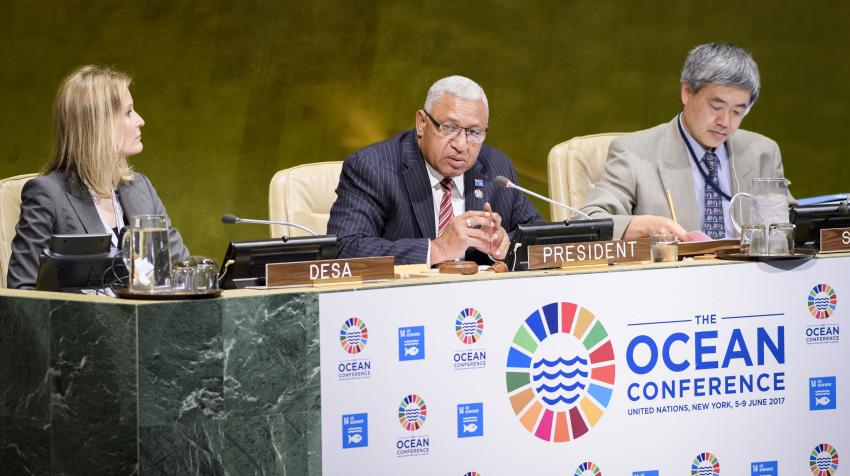World Oceans Day, celebrated every year on 8 June, is an opportunity to reflect on the importance of oceans to our lives and livelihoods, and the environmental impact of human activity on oceans.
The University of Bergen (Norway), United Nations Academic Impact (UNAI) SDG Hub for Goal 14: Life below water, is a center of scholarship, research and innovation for the preservation of oceans for the future of mankind.
In this series commemorating World Oceans Day, the University of Bergen explores various aspects of sustainable oceans and how universities can contribute to the stewardship of this natural resource. In this article, the university explores the use of science diplomacy to help save our oceans.
Situated on the west coast of Norway, the city of Bergen has long traditions in trade, cultural exchange and science relating to the ocean. The University of Bergen (UiB) has integrated the SDG14 Hub status with its science diplomacy activities, where the university has built a strong presence, in particular at the axis between SDG14 and the other goals in the 2030 Agenda.
On behalf of the university, its task force SDG Bergen Science Advice has co-organized and chaired official side events at international convenings such as the Climate Change Conference and the UN High-level Political Forum (HLPF), in close partnership with diplomats and scientists from its global network. The June 2019 Bergen Summer Research School was also devoted to the science-policy nexus and to practical training in communicating science to diplomats.
Science diplomacy is a term used for scientific cooperation to build international partnerships. As addition to collaboration between scientific institutions, such partnerships may encompass international organizations, nation states, government agencies, civil society and the private sector. Universities and university networks can engage in science diplomacy and can create innovative channels for scientific advice.
Professor Edvard Hviding is the Scientific Director for SDG Bergen Science Advice, which spearheads the university’s science diplomacy efforts. “It all began when we sent a small, but dedicated delegation to the inaugural UN Ocean Conference in New York in June 2017,” he said, “which led to us making voluntary commitments with our close university partners in the Pacific and Africa, strengthening our global ocean-climate science collaborations.”
The Ocean Conference turned out to be the starting point for the university’s exploration into science advice and science diplomacy with a focus on providing policymakers with research-based knowledge on SDG14. “We quickly realized that limiting our advice to one SDG was not enough. Instead, we focused on overall SDG literacy, analysing the goals, sub goals and targets in the 2030 Agenda to see where our science could make a difference,” noted Prof. Hviding.
This led to the university adopting its juxtaposition model in science diplomacy, bringing ocean and climate science together with the ideals of partnerships enshrined in the 2030 Agenda. He highlights the UN Decade of Ocean Science for Sustainable Development initiated by IOC-UNESCO as a great example for collective action involving academia, and the University of Bergen immediately integrated this into its science diplomacy platform.
“This is actually key to providing new knowledge to inform decision-making on the SDGs. This allowed us to explore and exemplify ways in which scientific knowledge and multilateral diplomacy can be brought into closer interaction for the SDGs,” Prof. Hviding emphasized.
To find out more about what our SDG Hub for Goal 14 is doing, click here.
List of additional resources:
- Official UN World Oceans Day Portal
- UN ESCAP Theme Study “Changing Sails: Accelerating Regional Actions for Sustainable Oceans in Asia and the Pacific”
- UNESCO Global Ocean Science Report “Current Status of Ocean Science Around the World”
- UN Report “The Ocean and the Sustainable Development Goals Under the 2030 Agenda for Sustainable Development”
- UN SDGs Knowledge Platform - Oceans & Seas

